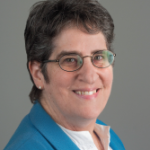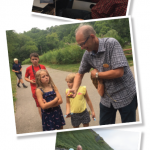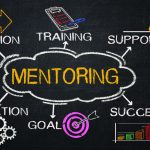Of his election to the AAAS, Dr. Rosen says he feels honored “to be in such strong company,” adding that the society plays an important role in modeling the power of science for humanity.
Born in South Africa, Dr. Rosen launched his scientific career path in medical school, when the curriculum opened his eyes to how the body’s physiology works naturally—and how things go wrong. “It became clear to me that my passion was trying to understand the mechanisms that underlie human disease,” he says.
Dr. Rosen obtained his medical degree at the Medicine University of Cape Town in 1984 and completed his residency at Groote Schuur Hospital in 1987. He then pursued his post doctorate in immunology and cellular biology, working in the Rockefeller University (New York) laboratory of Alan A. Aderem, PhD, who is also from South Africa and is currently professor of immunology and medicine at the University of Washington, Seattle. He believed it was important to incorporate clinical work, so he completed a residency on the Osler Medical Service at Johns Hopkins, followed by a rheumatology fellowship, also at Johns Hopkins.
He believes the best narration of the causes and mechanisms of disease comes from patients: “The subtle things that humans observe about themselves can clue you in if you listen and interact with patients. You can really see disease unravel itself. In my view, that is sacred work.”
Dr. Rosen’s research, often conducted in partnership with his wife, Livia Casciola-Rosen, PhD, has focused on the shared mechanisms of autoimmune rheumatic diseases. Their work has yielded valuable insights into the specificity of immune responses during inflammatory circumstances. His own lab is now focusing on apoptosis and the mechanisms underlying connections between autoimmunity and cancer.
In addition to his research, Dr. Rosen has been key in attracting, and mentoring, younger researchers to the department of medicine.
He received both the Sir William Osler Young and Henry Kunkel Young Investigator awards in the late 1990s, and believes it is the responsibility of senior scientists to enable younger people to bring creative insight to the research. “I think that fields leap when new people come. They can look at the basic assumptions in ways that haven’t been approached before.”
Gretchen Henkel is a health and medical journalist based in California.



